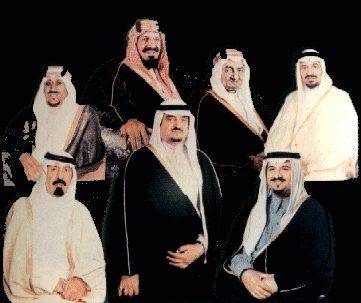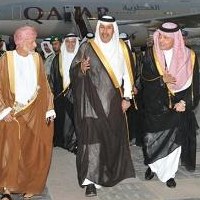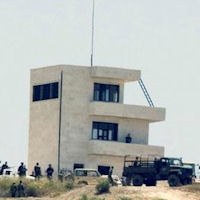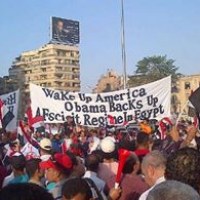Still a current article on the dangers of Wahhabism.
Originally published by The Middle East Forum; february 27, 2003; Saudi Arabia and the Rise of the Wahhabi Threat.
A briefing by Stephen Schwartz,
Al-Qaeda represents Wahhabism in its purest form – a violent fundamentalist doctrine that rejects all non-Wahhabi Islam, especially the spiritual forms of Islam. Wahhabism is an expansionist sect intolerant of Shi‘ite Islam, Judaism, Christianity, and Hinduism; in fact, Wahhabists seek to challenge and destroy these faiths. The Saudi-Wahhabi threat must not be underestimated; it requires our grave attention.
A History of Violence
Contrary to prevalent Western beliefs, Wahhabism is not an old Islamic tradition and the House of Saud does not enjoy a credible historic claim to rule over Arabia. Indeed, Wahhabism emerged only 250 years ago under the guidance of an obscure fanatic known as Muhammad Ibn ‘Abd al-Wahhab who later formed an alliance with a group of desert bandits, the Sauds. From the time they established their covenant to the creation of the modern Saudi state, the Saudi-Wahhabi movement spread across the peninsula brutally defeating and enslaving non-Wahhabi elements.
A substantial body of nineteenth century scholarship does exist to confirm the bloody rise of the Saudi-Wahhabi state. Thomas Hope, a British author, wrote extensively about the Wahhabi spread from his travels throughout the Middle East. In his novel Anastasius, he described Wahhabi agents in words that will be strikingly familiar to modern readers: as extremist puritans bent on dominating the Muslim world by adopting tactics reminiscent of Al-Qaeda’s calculated savagery.
The theological and political pact between the Saud clan and the Wahhabists resulted in the fall of Mecca for the second and last time in 1924, solidifying their grip on power. After the conquest of Mecca, the vast oil wealth of the kingdom would be used to export a radical Wahhabist ideology across the globe.
Nerve Center of Islamic Extremism
Even after September 11, the Wahhabi bureaucracy in Saudi Arabia continues to foster religious extremism. When bombs go off in Israel, Kenya, Indonesia, and elsewhere, Saudi Arabia is still the main source of the terrorist money. The kingdom is an unwavering nerve center of ideological indoctrination, incitement, and terrorist financing.
From time to time, the Saudi elite attempts to confuse Western opinion by claiming that it too is the target of Islamic terror, a rather hollow gesture to hide its complicity in terrorism. Saudi Arabia, being a police state, the monarchy long ago could have ridded itself of extremist elements. But the sobering reality is that international terrorist groups such as Al-Qaeda are directly impelled by Saudi clerics. To recover their credibility in the eyes of more reactionary factions after years of excess, the Saudi family has embarked on an ambitious global campaign to support incubators of violence and extremism from Algeria to the Philippines. In sum, Al-Qaeda would not exist absent Saudi money and membership.
False Arguments
Washington needs to end its delusion that the Saudi royal family is a moderating force within Saudi politics when the realty is that it has produced a well-funded launch pad for a fascist ideology. Unfortunately, there is no shortage of Saudi apologists. The so-called specialists and academics continue to argue that Islamic terror is the consequence of Islam enduring Western humiliation. But in fact, Saudi Arabia has never been subjugated by the West, instead it has only been cuddled and bribed to ridiculous extremes. And in turn the West has received a torrent of violence and hateful venom.
Equally as erroneous is the contention that an accommodation of non-Wahhabi religions is somehow a break with traditional Islam. This absurd notion is blatantly untrue. Qatar, another Wahhabi state, has actually authorized the establishment of churches. Also, neighboring Bahrain contains thriving Christian, Jewish, and Hindu communities. One can even find a Hindu temple in Oman.
The Future
After decades of theocratic oppression, the vast majority of the Saudi people are restive for the following reasons: 1.) The Shiite minority in the southern and eastern provinces are tired of the violent persecution they have suffered at the hands of the Wahhabist clergy. 2.) The young people of Saudi Arabia want to live in a modern society where they can utilize their enterprising talents and energies to build a prosperous future. 3.) Lastly, non-Wahhabi scholars are already calling on the royal family to reject the officially sanctioned intolerant state religion and replace it with pluralistic Ottoman-Islamic traditions. Remarkably, thousands of young people are turning to Sufism as an expression of protest against the entrenched religious establishment.
The transition to a reasonably open Malaysian parliamentary model from its current medieval state need not be catastrophic. The Saudi monarchy could remain as a symbolic body with power concentrated in a representative legislature. Indeed, the position that a more strict Islamic system might emerge if the House of Saud is brushed aside is ludicrous. Proponents of this view often cite the emergence of an Iranian-style regime as a possible consequence. However, this is a specious historical analogy since the Iranian people never experienced the harsh strictures of Islamic law prior to the ascension of the Islamic Republic. The people of Saudi Arabia know this repression all too well and they are dead tired of it.
Conclusion
Saudi Arabia and its militant Islamic doctrines constitute a clear and present danger to the United States and the international community. The U.S. should demand a full accounting of Saudi complicity in the September 11th terrorist attacks. We should no longer accept the status quo and forcefully pressure the kingdom to cut its ties to terrorism.
This summary account was written by Zachary Constantino, a research assistant at the Middle East Forum.
About the author,
Stephen Schwartz is a senior policy analyst with the Foundation for the Defense of Democracies based in Washington, DC. As a journalist, he covered the Balkans in the 1990s for the San Francisco Chronicle. His latest book is The Two Faces of Islam: The House of Sa’ud from Tradition to Terror (Doubleday, 2002). He spoke to the Middle East Forum in New York on February 27, 2003.



 RSS
RSS











Saudi Arabia and the Rise of the Wahhabi Threat #Islam #jihad #us http://j.mp/ajlqp4
Saudi Arabia and the Rise of the Wahhabi Threat #Islam #jihad #us http://j.mp/ajlqp4
Saudi Arabia and the Rise of the Wahhabi Threat #Islam #jihad #us http://j.mp/ajlqp4
Saudi Arabia and the Rise of the Wahhabi Threat #Islam #jihad #us http://j.mp/ajlqp4
Saudi Arabia and the Rise of the Wahhabi Threat #Islam #jihad #us http://j.mp/ajlqp4
Saudi Arabia and the Rise of the Wahhabi Threat #Islam #jihad #us http://j.mp/ajlqp4
Saudi Arabia and the Rise of the Wahhabi Threat #Islam #jihad #us http://j.mp/ajlqp4
RT @CrethiPlethi: Saudi Arabia and the Rise of the Wahhabi Threat #Islam #jihad #us http://j.mp/ajlqp4
[…] This post was mentioned on Twitter by Rem Nant. Rem Nant said: RT @CrethiPlethi: Saudi Arabia and the Rise of the Wahhabi Threat #Islam #jihad #us http://j.mp/ajlqp4 […]
A great book about Saudi was written by a californian paramedic who worked for King Abdullah. It is called “Paramedic to the Prince”
It is the best inside look into Saudi Arabia by ant western writer. a real must read if your interested in what this country is really like.
RT @CrethiPlethi: Saudi Arabia and the Rise of the Wahhabi Threat #Islam #jihad #us http://j.mp/ajlqp4
RT @crethiplethi: Saudi Arabia and the Rise of the Wahhabi Threat http://is.gd/cF3Fg
Saudi Arabia and the Rise of the Wahhabi Threat : http://bit.ly/cH7YRe